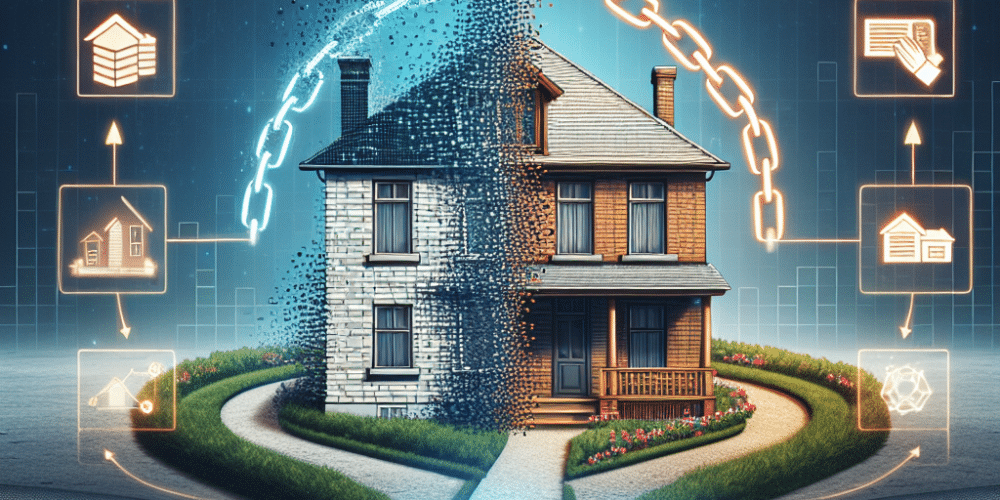In an exciting development within the real estate sector, blockchain technology is now leading the charge toward more secure, efficient, and transparent property transactions. This innovation promises to significantly reduce the time and complexity involved in buying and selling real estate by digitizing the process and eliminating many traditional hurdles.
Property transactions, typically burdened by lengthy procedures, extensive paperwork, and multiple intermediaries, may soon see an overhaul as blockchain technology introduces a streamlined approach. This emerging technology not only speeds up transactions but also enhances security and trust among parties, potentially transforming how properties are bought and sold worldwide.
How Blockchain Enhances Real Estate Transactions
Blockchain, at its core, is a decentralized ledger technology. Each transaction on the blockchain is recorded with an immutable cryptographic signature called a hash. This feature is crucial for real estate transactions where the history and the clarity of title ownership need to be transparent and free from disputes.
The technology allows for the creation of smart contracts—self-executing contracts with the terms directly written into code. In the context of real estate, these contracts automatically execute transactions like escrow release to sellers and title transfer to buyers, only when all predefined conditions are met. This automation not only minimizes the risk of fraud but also dramatically cuts down the processing time from weeks to just a few days or even hours.
Recent Breakthroughs and Implementations
Several startups and established real estate firms have begun to explore the potential of blockchain. For instance, Propy Inc., a U.S.-based startup, recently facilitated the first-ever entirely blockchain-based real estate transaction in Vermont. The transaction was completed using Ethereum and is legally recognized by the local government, marking a significant milestone in the practical application of blockchain in real estate.
In another example, the Republic of Georgia has collaborated with blockchain company Bitfury to integrate blockchain into its land title registry. By doing so, Georgia significantly enhanced the security of its land titles and streamlined access to public property records, setting a benchmark for other governments to follow.
The Future of Blockchain in Real Estate
The implications of blockchain technology in real estate extend beyond just buying and selling properties. Lease management, due diligence, and even financing could see a revamp with blockchain integration. Tokenization of property assets is another area ripe for development. This process involves converting real estate assets into digital tokens that can be traded much like stocks on an exchange. Such innovations could democratize access to real estate investment, making it possible for more people to invest in property with relatively small amounts of capital.
Moreover, the increased transparency and efficiency brought about by blockchain technology could attract more foreign investments into local property markets. Investors can have greater confidence in property transactions, knowing that the data integrity of ownership records and transaction histories is maintained.
Challenges Ahead
Despite the promising developments, a complete adoption of blockchain in real estate is not without challenges. Regulatory hurdles, the need for technological infrastructure, and market readiness all pose significant barriers. Additionally, the real estate market, being traditionally conservative, might show resistance to adopting such a radical technological shift.
Furthermore, the legal recognition of blockchain transactions varies by jurisdiction, which can complicate cross-border property deals. The technology itself is also in continuous evolution, with issues like scalability and energy consumption still being hot topics of discussion.
Conclusion
As blockchain technology continues to evolve, its potential to reshape the landscape of real estate transactions becomes increasingly apparent. With key stakeholders beginning to embrace this technology, the future of real estate could see unprecedented levels of transparency, efficiency, and accessibility. However, for blockchain to fully realize its potential in this sector, continued innovation, regulatory adaptation, and market acceptance are imperative.
The integration of blockchain into real estate transactions is not just a technical upgrade but a revolutionary shift that could redefine the very foundations of property ownership and investment. As we witness more success stories and overcome challenges, blockchain stands ready to cement its role in the future of real estate.




